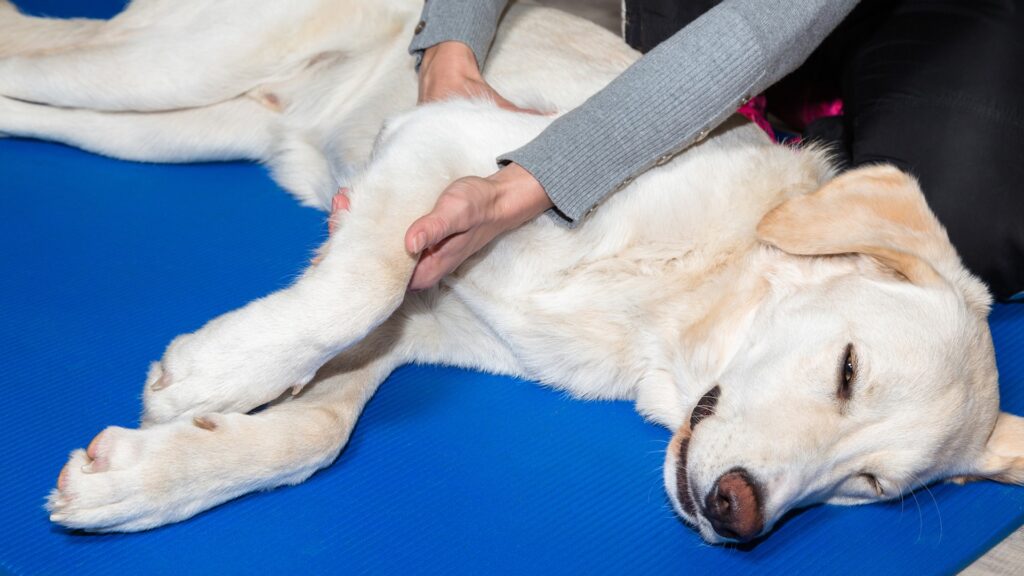
There are more than a dozen veterinarian clinics in Simi Valley. Finding a reliable veterinarian for your pet is an important task for any pet owner. Regular check-ups and necessary medical care can help ensure the health and well-being of your furry friend.
Living in Simi, you may be familiar with Dr. Ron on Royal Avenue or Park Animal Hospital on Tapo Street. Both of these are highly-rated among residents and well trusted facilities.
Having a pet, you may be familiar with the typical set of services offered by veterinarians around town. These include physical exams, vaccinations, spaying and neutering, diagnostic testing and certain surgeries. However did you know, there is a growing list lesser-known services more and more pet owners are asking for?
Here is a list of 13 routine veterinary services that some people may not be aware of, or may not think to ask for:


- Alternative therapies: Alternative therapies such as acupuncture or chiropractic can provide pain relief and other benefits for pets. Studies have shown that over 50% of pet owners in the United States are interested in alternative therapies for their pets.
- Geriatric care: Regular geriatric care can help extend the lifespan of older pets and improve their quality of life. Senior pets (7 years and older) make up an estimated 25% of the pet population in the United States.
- Behavioral counseling: A veterinarian can help identify the cause of behavioral issues in pets and provide guidance on how to address them. Approximately 20% of pets are surrendered to shelters due to behavioral issues. In some areas, that number can be as high as 50%.
- Travel documentation: Some countries require specific documentation for pets to enter or transit through the country, so it’s important to plan ahead if you’re traveling with your pet. Over 2 million pets and other live animals are transported by air every year in the United States, more than 4 million worldwide. United Airlines alone transported 138,000 animals in 2017.
- Nutritional counseling: Proper nutrition is essential for the health and well-being of pets, and a veterinarian can provide guidance on the best diet for your pet. Over 50% of pets in the United States are overweight or obese, which can lead to serious health problems.
- Hospice care: Hospice care can provide comfort and support for pets and their owners during the end-of-life process. For human patients, the hospice concept originated more than 50 years ago, The number of pet hospice programs in the United States has increased by over 50% in the past decade.
- Dental care: Dental problems can lead to more serious health issues in pets, so regular dental care is important for their overall health. 80% of dogs and 70% of cats show signs of oral disease by the age of three.
- Microchipping: Microchipping is a permanent method of identification that can help reunite lost pets with their owners. The American Humane Association estimates that less than 2 percent of lost cats that entered the animal shelters were reunited with their families. The return-to-owner rate for micro chipped cats was dramatically higher at over 38 percent (more than 2000 percent better).
- Emergency preparedness: It’s important to have a plan in place for emergencies involving pets, such as natural disasters or sudden illness. The American Red Cross recommends keeping a two-week supply of food and other supplies on hand for pets in case of emergencies.
- Pet owner end-of-life planning: Advance planning for end-of-life decisions can help ensure that the wishes of both the pet and the owner are respected. Approximately 80% of pet owners have not made end-of-life plans for their pets in their will.
- Physical therapy: Physical therapy can help pets recover from injuries or surgery, and can also help manage chronic conditions. Physical therapy can help pets recover from surgery or injuries in as little as half the time as traditional rest and confinement.
- Genetic testing: Genetic testing can help identify inherited conditions in pets and allow for early intervention and management.
- Emergency evacuation: Having a plan in place for emergency evacuation of pets can help ensure their safety in the event of a disaster or crisis. The Federal Emergency Management Agency recommends keeping a supply of food, water, and other supplies on hand for each pet in case of evacuation.
In conclusion, regular veterinary care is essential for the health and well-being of your pet. By doing your research and selecting a reliable veterinarian, you can ensure that your furry friend receives the best possible care and lives the longest, healthiest life possible.











